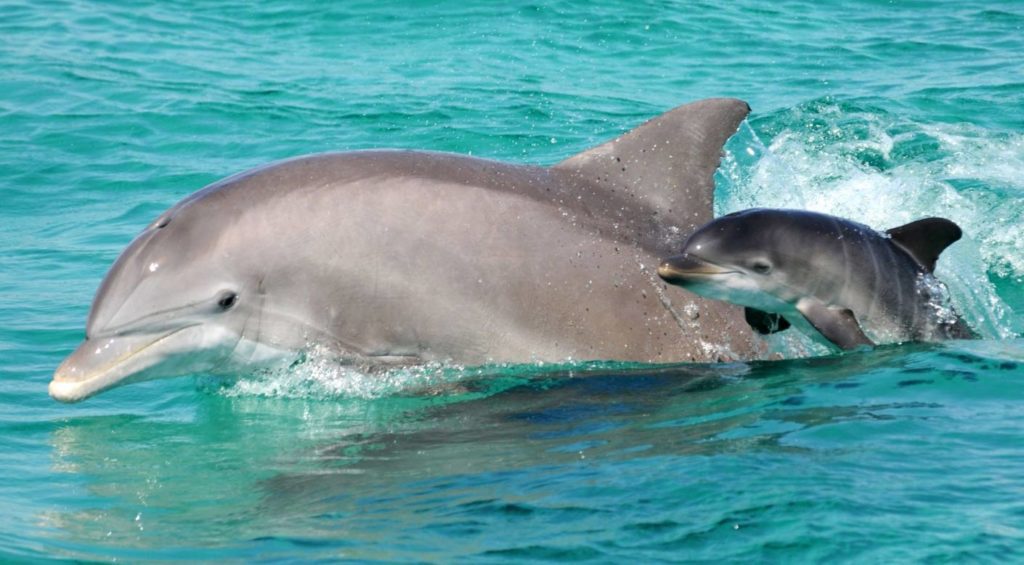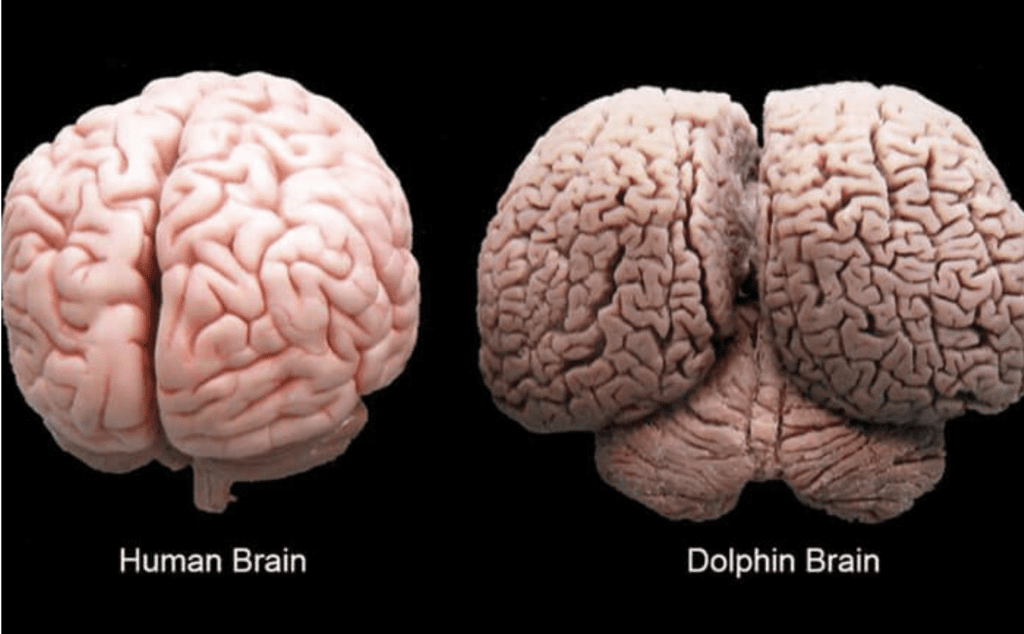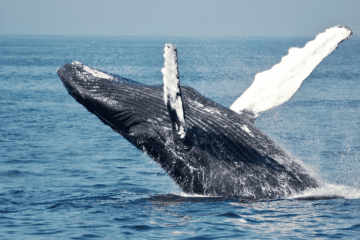I had a life-changing experience in Hawaii recently when we were visited by a whale while kayaking. There is no doubt that this majestic being was coherent, aware of us, and enjoying our company as much as we were enjoying hers. We put our snorkeling masks on and jumped in the water and could easily see the whale gently make eye contact with each of us. With one thrust of her tail he could have left in an instant but she stayed with us for over an hour. A mammal with a brain bigger than ours and complex migration songs that change every year, I couldn’t help but wonder what kind of thoughts could be going through her mind. So I did a little research…

Anyone with pets knows that animals are coherent, able to communicate, and have emotions. Emotional intelligence and empathy are languages that many animals understand. In some cases maybe even better than humans! It was only recently that terms like emotional intelligence emerged and it is interesting to consider that there are many different kinds of intelligence. Paul Watson of Sea Shepherd makes a good argument in a recent Facebook post that perhaps humans concept of intelligence is anthropocentric and lacking in breadth.
Watson starts early in his essay with the bold assertion that, “Biological science is provoking us to shatter our image of human superiority.” Though indigenous wisdom has always considered humans a part of the circle of life rather than above it, that sentiment has almost been completely destroyed by generations of colonial indoctrination. The very roots of colonial indoctrination not only conclude that humans are superior to all other life forms, it also considers some humans as superior to others.

Social Darwinism, a myth, was an effort to use science to validate the behavior of employing superior weaponry to oppress other humans. Though we owe much respect to western science we must also understand the cultural and religious backdrop from which this discipline emerged. We must also be willing to explore the assumptions within science if we are to evolve it.
Rupert Sheldrake attempted to do this during a TED Talk entitled, The Science Delusion and his presentation was banned. This is not to say that Sheldrake is right and all of science is wrong, that is too simplistic. It is merely an opportunity to open a dialogue about assumptions within science that the scientific community may or may not be willing to consider. I mention it in the context of considering the humble notion that humans may not posses the highest form of intelligence on the planet. If for no other reason than amusement, just open your mind and consider…
It is fascinating to reflect on mammals like us who have been on the planet a whole lot longer than us who also have larger brains than us. We humans pride ourselves on technology, on creating tools, gadgets and machines. Of course it is easy to consider that intelligence is based on our ability to create technology or tools, but there ARE other forms of intelligence.
For example, emotional intelligence acknowledges a form of intelligence which is internal, can not be easily measured empirically but plays a major role in the success of an individual. Intuition, compassion, empathy are usually considered feelings, but these are skills, non-physical tools that we can use to ascend the social ladder. Meditation could also be considered a non-physical tool that changes our biology, reduces stress and opens the mind. We may be at the very beginning of understanding that tools do not need to be physical or easily measurable by traditional science in order to be valuable.
We willingly accept the idea of intelligence in a life-form only if the intelligence displayed is on the same evolutionary wavelength as our own. Technology automatically indicates intelligence. An absence of technology translates into an absence of intelligence.
Dolphins and whales do not display intelligence in a fashion recognizable to this conditioned perception of what intelligence is, and thus for the most part, we are blind to a broader definition of what intelligence can be.
Evolution molds our projection of intelligence. Humans evolved as tool-makers, obsessed with danger and group aggression. This makes it very difficult for us to comprehend intelligent non-manipulative beings whose evolutionary history featured ample food supplies and an absence of fear from external dangers. – Paul Watson
Again it is important to recognize how this attitude has not only been applied to animals, but also to indigenous people historically. How we define intelligence is restricted to our definition of intelligence. Are we willing to broaden our definition of intelligence?
Intelligence can also be measured by the ability to live within the bounds of the laws of ecology — to live in harmony with one’s own ecology and to recognize the limitations placed on each species by the needs of an ecosystem. Is the species that dwells peacefully within its habitat with respect for the rights of other species the one that is inferior? Or is it the species that wages a holy war against its habitat, destroying all species that irritate it? What can be said of a species that reproduces beyond the ability of its habitat to support it? What do we make of a species that destroys the diversity that sustains the ecosystem that nourishes it? How is a species to be judged that fouls its water and poisons its own food? On the other hand, how is a species that has lived harmoniously within the boundaries of its ecology to be judged? – Paul Watson
Watson gets very in-depth and cites the research which compares cranial capacity, and brain complexity between humans and sea mammals. At the very least this information is humbling. Paul Watson has given us a lot to think about, but probably the greatest gift in his essay can be summarized by this quote:
It’s not enough to understand the natural world, the point is to defend and preserve it. – Edward Abbey
Watson is not merely a philosopher, he puts his words and beliefs into action. For 35 years, Captain Paul Watson has been at the helm of the world’s most active marine non-profit organization – the Sea Shepherd Conservation Society. I highly recommend reading the entire essay which is available here.
To even consider that we are not superior to other species is delightfully humbling. It can restore a child-like sense of awe for life which also inspires a desire to preserve our environment. Our tools are wonderful, our science is also wonderful, but it should be used to celebrate and elevate all of life. We must consider that the unconscious, disrespectful use of our tools and science can create unimaginable destruction for ourselves and other species. A healthy future includes humans who are aware of this and who live within the bounds of their ecosystem. We have the ability to create worlds or destroy ourselves. How do you want to live your life?
*If you are enjoying Culture Collective and would like to become a patron, please visit here!*


